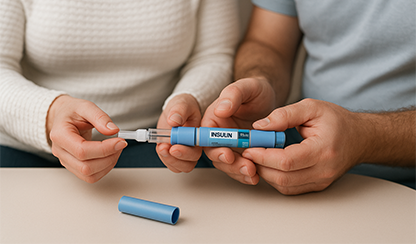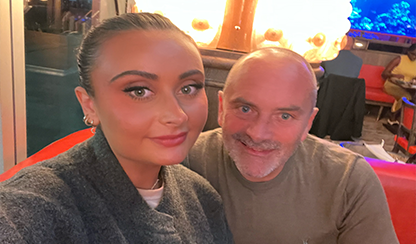17 August 2023
Institute news

This week is Science Week. Since starting his career in his home country of Mexico, Jonathan Lozano-Salgado has worked on fascinating science projects that explored treatments in areas as diverse as addiction and drug abuse, parasitic infection, and COVID-19. But it is the science of cardiac repair that has stolen the big heart of this PhD student.
How has your family helped to support your career?
I lost my Dad when I was young but my mother and grandmother were the pillars for me and my brothers. They made sure we followed our dreams and ambitions growing up. When I finished Uni, I started supporting myself by working and doing a Master’s scholarship, which in combination opened the doors for me to continue my journey towards doing a PhD in Australia, which they very much supported.
Tell us about the interesting work you’ve been involved with outside of the Institute.
I did several internships in hospitals during and after my studies, where I had the opportunity to be part of really cool projects. One of them was to produce antibodies designed to help people fight addictions and drug abuse, under the supervision of Dr Benito Anton (1958–2016). Another project focused on developing immunological treatments for people suffering from parasitic infections in rural areas of Mexico, led by Dr Laura Adalid.
During the Covid pandemic, as part of my industry job and in collaboration with Australian universities, institutes, and companies, I had the privilege to manage projects focused on the prophylaxis and/or treatment of COVID-19. One of them was displayed in a special exhibition at the Melbourne Museum focused on Victoria’s response against this virus.
Currently, while I’m doing my PhD, I am also the project manager and production planner for an Australian pharmaceutical company which works with a medicine aimed at the treatment of diverse human conditions such as depression, anxiety, pain management, symptoms caused by chemotherapy and Tourette’s syndrome, among others. It’s all very interesting work.
Why have you chosen to concentrate on cardiac repair for your PhD?
When I was looking for potential supervisors for my PhD within the cardiovascular area, I stumbled upon David Greening’s profile on the Baker Institute website. As soon as I read the research focus of his group, I knew I had to be part of that multi-disciplinary approach to developing therapeutics.
I’ve always been fascinated by the human heart in health and disease. It’s shocking to me that heart disease remains one of the leading causes of mortality and morbidity worldwide and I want to contribute as much as I can towards finding a cure or treatment. I like to think we are closer and closer every day.
It’s Science Week this week, tell us about the very cool organoids you’re working with.
This is, without a doubt, my favorite model for the study of heart disease. In a key collaboration with the cardiac regeneration group at St Vincent’s Institute, we use these “miniature hearts on a dish” to simulate and understand the impact of a heart attack. By mimicking some aspects of the human heart, these little structures allow us to develop and test potential therapeutics that could be treating people’s heart conditions in the future. We believe this technology, which is used all around the world, is helping to refine the way we perform research and develop strategies and therapies to treat disease.
You have a very positive attitude. What’s your philosophy towards life and work?
I totally owe this positive side of my nature to my grandmother. Her phrase for me growing up was “You should always find the positive side of everything in life”. I think we always learn vastly from our mistakes, and it is through our failure and perseverance that leads to success. In science, every failed experiment helps us to refine and reformulate our questions and approach.
In my home life, something I really enjoy is playing my cello. When I do, it’s like everything else disappears, it’s just me in that moment enjoying the sound (and perhaps some angry neighbors). Those moments definitely make the nightmare that was bringing my cello all the way to Australia from my home in Mexico worth it! I think doing activities that contrast your work help you unwind and help you to approach problems using different strategies with a fresh mind.





